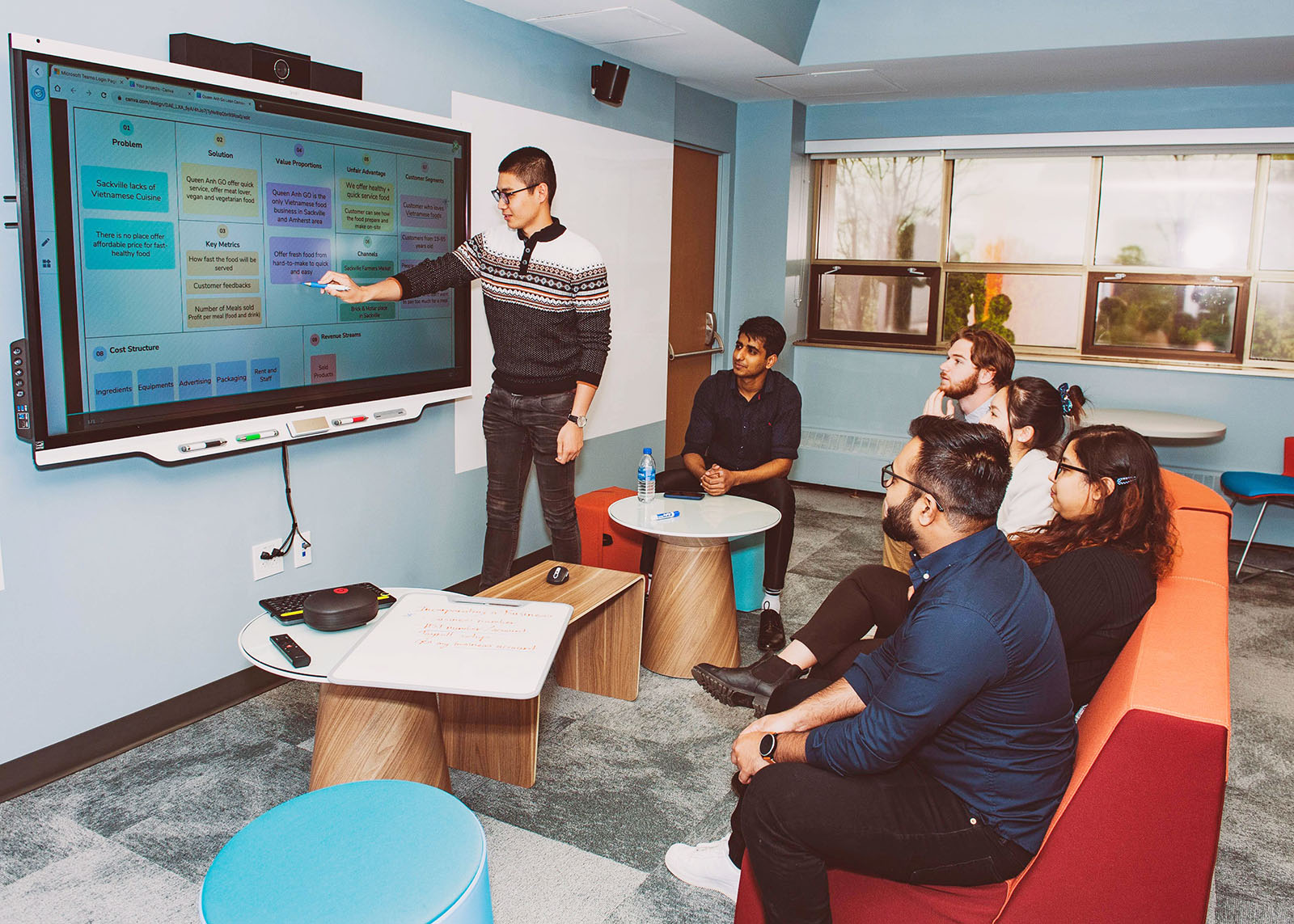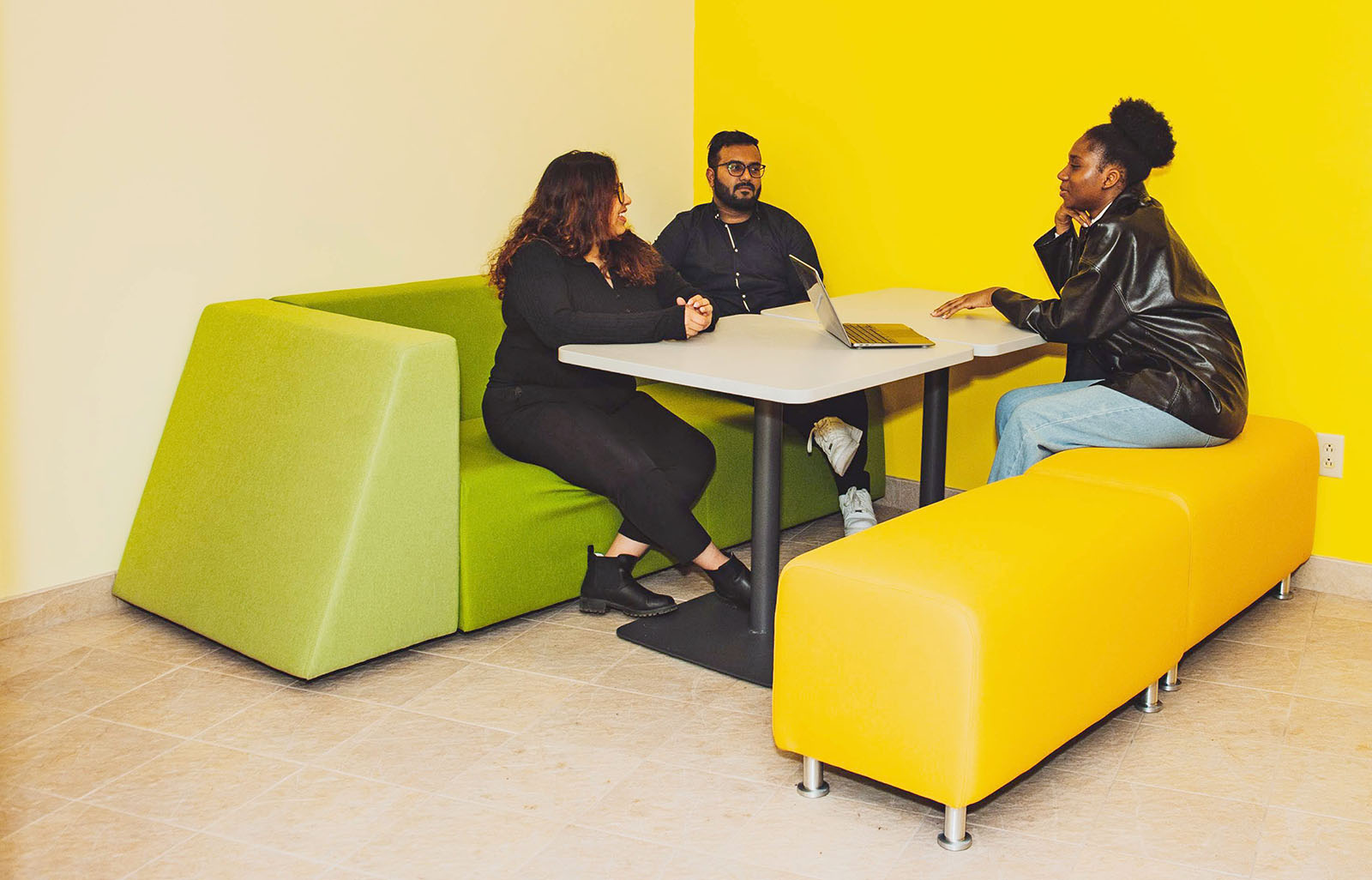Next generation learning spaces
Two innovative learning spaces just opened in the Crabtree and Avard-Dixon buildings and are attracting lots of attention. They are part of the University’s Ideas Lab project, creating new classrooms that are purpose-designed for entrepreneurial and experiential learning, and for exploring new forms of teaching.
“These spaces have an incredible energy,” says Jeff Hennessy, Mount Allison’s provost and vice-president, academic and research. “There is no front or back of the classroom, and students intuitively understand they are entering a creative space where they will need to collaborate with their peers and teachers and be active participants in learning.”
Both rooms are equipped with moveable furniture and whiteboards, portable charging stations for laptops and other devices, and multiple digital displays with advanced videoconferencing and presentation software. The spaces will be used for formal classes, student meetings, special presentation and learning initiatives, and for collaborations with community partners.

Donations from Scott McCain and the Ogilvie Family, both longtime supporters of Mount Allison, made the renovations possible.
“My family strives to be innovative in our philanthropy,” says Robert Ogilvie (’67). “Out-of-the-box thinking is something that really attracts our attention, and the Ideas Lab project was a great fit for that, along with being a way to continue to support our alma mater.”
Scott McCain (’78) shares Ogilvie’s enthusiasm for getting involved in such a unique project.
“I see how it really pushes the boundaries of what a classroom can be, and I think the Ideas Lab project will be a great proof of concept toward Mount Allison renovating even more learning spaces on campus,” he says.
Vicki St. Pierre, Mount Allison’s dean of arts, has led the Ideas Lab project for the University.
“Research shows these types of spaces are better for learning in a number of disciplines, for interdisciplinarity, and for developing the kinds of skills students can take with them when they graduate,” she says. “Spaces like these allow professors to research and test new pedagogies and ways of learning. It creates new and innovative experiences for teacher and student alike.”

Mount Allison has long recognized the transformative power of a physical space or location. Since 1839, the campus has been a treasured place to welcome students, encourage the coming together of diverse minds and talents, and inspire inquiry and discovery. The Ideas Lab classrooms are the important next iteration of Mount Allison’s commitment to fuelling innovation on campus.
“We are so grateful to Scott and Robert and their families for supporting the Ideas Lab project from inception and helping propel the University’s strategic goals,” says Courtney Pringle-Carver, vice-president, university advancement. “This kind of visionary early support for a capital project, and one that is rooted in the fundamentals of teaching, is extraordinary and speaks to the unique commitment and trust Mount Allison donors have in our University.”
The University will continue creating innovative learning spaces on campus and there are opportunities for donors to help.


